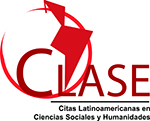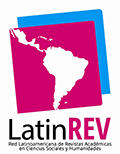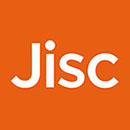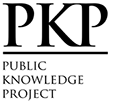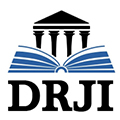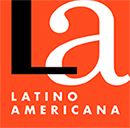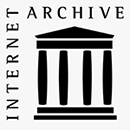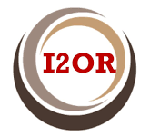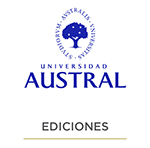A Glance to the Speech of the Artificial Intelligence and the Author's Rights, Analyzed from the Theory of the Personality
Abstract
Artificial intelligence is a phenomenon that has evolved becoming increasingly notable in our society, especially since what has been called the “fourth industrial revolution”, a period in which there has been a great increase of technological inventions. Due to this exponential development, artificial intelligence has taken a relevant role in daily life. One of the ways in which these technologies have become present in our society has been through literary, artistic and scientific creations, which has reopened debates, that had already been closed within the autor’s rights law, over classical figures on this matter. Among these figures, the authorship, originality and, consequently, the ownership of rights stands out.
The answer about the latter has different approaches, which are commonly found in many academic texts, but the purpose of this article is to present a proposal from the philosophical foundations of the author’s rights perspective, especially from the study of the theory of personality , defining it as one of the main theories that justify the existence of normative systems of autor’s rights, in order to determine if the creations produced by this type of technology can be susceptible for a special recognition of rights within our legal system.
Downloads
References
Antequera Parilli, R. (2007). Estudio de Derecho de Autor y Derechos Afines. Reus.
Arendt, H. (2015). La condición Humana. Vida activa y condición humana (2ª ed.). Paidós.
Attas, D. (2008). Lockean Justification of Intellectual Property. En Gosseries, A. Marciano, A. y Strowel, A., Intellectual Property and Theories of Justice. Palgrave Macmillan.
Bécourt, D. (1990). La Revolución Francesa y el Derecho de Autor: Por un Nuevo Universalismo. Boletín de Derecho de Autor, XXIV(4).
Boden, M. (1998). Computer Models of Creativity. En Sternberg, R., Handbook of Creativity (pp. 351-372). Cambridge University Press.
Bringsjord, S. y Govindarajulu, N. S. (2018). Artificial Intelligence. Stanford Encyclopedia of Philosophy.
Carbonell, C. (2015). Platón visita una exposición de Malévich. El arte en la ampliación de la experiencia filosófica. En Llano, A., El arte más allá de sí mismo. Aproximaciones a la cultura artística contemporánea (pp. 91-109). Siglo XXI.
Chiassoni, P. (2011). Técnicas de Interpretación Jurídica. Marcial Pons.
Cohen, J. (2007). Creativity and Culture in Copyright Theory. UC Davis Law Review, 40, 1151-1205.
Comisión de la Unión Europea. (2018). Communication from the Commission to the European Parliament, the European Council, the Council, the European Economic and Social Committee and the Committee of the Regions. Artificial Intelligence for Europe SWD(2018) 137 final.
Córdoba, J. F. (2015). El Derecho de Autor y sus Límites (1a ed.). Temis.
Dock, M. C. (1974). Génesis y evolución de la noción de propiedad literaria. Revue Internationale du Droit D'Auteur (RIDA).
Drahos, P. (2016). A Philosophy of Intellectual Property. Australian National University eText.
Draper, J. W. (1921). Queen Anne’s Act: A Note on English Copyright. Modern Language Notes, 36(3), 146-154.
Du Bois, M. (2018). Justificatory Theories for Intellectual Property Viewed through the Constitutional Prism. University of South Africa: PER/PELJ.
Durante, M. (2019). Potere computazionale. L'impatto delle ICT su diritto, società, sapere (Italian edition). Meltemi.
Dworkin, R. (1978). Liberalism. En Hampshire, S., Public and Private Morality (pp. 113- 143). Cambridge University Press.
Espejo, J. C. (2020). ¿Cuáles son las fronteras en los Procesos de Desarrollo de la IA? En Inteligencia Artificial. Transformaciones y retos en el sector editorial (pp. 18-32). CERLALC/UNESCO.
Fariñas, J. R. (2020). Inteligencia Artificial y derecho de autor: consideraciones sobre la autoría y la titularidad. En Inteligencia Artificial. Transformaciones y retos en el sector editorial (pp. 33-50). CERLALC/UNESCO.
Fisher, W. (2001). Theories of Intellectual Property. En New Essays in the Legal and Political Theory of Property (pp. 168-199). Cambridge University Press.
Geller, P. E. (1994). Must Copyright be Forever Caught between Marketplace and Authorship Norms? En Sherman, B. y Strowel, A., Of authors and origins. Oxford University Press.
Gervais, D. J. (2008). Intellectual Property and Human Rights: Learning to Live Together. Kluwer.
Gervais, D. J. (2019). The Machine As Author. Iowa Law Review, 105, 2053-2106.
Ginsburg, J. (1997). Author and Users in Copyright. Journal of the Copyright Society of the U.S.A., 45(1), 1-20.
Ginsburg, J. (2019). Informe General, Justificación del los Derechos de Autor. En Blomqvist, J., Copyright to Be or not to Be. ALAI. Ex Tuto.
Ginsburg, J. C. y Budiardjo, L. A. (2019). Authors and Machines. Berkeley Technology Law Journal, 3, 343-456.
Gordon, W. (1993). A Property Right in Self-Expression: Equality and Individualism in the Natural Law of Intellectual Property. Yale Law Journal, 102, 1533-1609.
Hamet, P. y Trembaly, J. (2017). Artificial Intelligence in Medicine. Metabolism.
Hegel, G. (1966). Fenomenología del Espíritu. Fondo de Cultura Económica.
Hegel, G. (1991). Elements of the Philosophy of Right. Cambridge University Press.
Hervada, J. (2002). ¿Qué es el Derecho? Eunsa.
Hettinger, E. (1989). Justifying Intellectual Property. Philosophy and Public Affairs, 18(1), 31-52.
Holzinger, A., Langs, G., Denk, H., Zatioukal, K. y Müller, H. (2019). Causability and Explainability of Artificial Intelligence in Medicine. WIREs.
Huges, J. (1998). The Philosophy of Intellectual Property. Georgetown University.
Kant, I. (1887). The Philosophy of Law. T. & T. Clark.
Kant, I. (1973). Crítica del juicio. Porrúa.
Kateb, G. (1992). The inner Ocean: Individualism and Democratic Culture. Cornell University Press.
Landes, W. M. y Posner, R. A. (2003). The Economic Structure of Intellectual Property Law. Harvard University Press.
Lipszyc, D. (2017). Derecho de Autor y Derechos Conexos. CERLALC.
Litman, J. (1990). The Public domain. Emory Law Journal, (39), 965-1023.
Locke, J. (1988). Two Treatises of Government. Cambridge University Press.
Menell, P. (2000). Intellectual Property: General Theories. En Bouckaert, B. y De Geest, G., Encyclopedia of Law & Economics (Vol. II, pp. 129-188). Cheltenham.
Merges, R. P. (2011). Justifiying Intellectual Property. Harvard University Press .
Mills, M. (23 de febrero de 2016). Artificial Intelligence in Law: The State of Play 2016. Thomson Reuters Legal Executive Institute blog. https://www.legalexecutiveinstitute.com/artificial-intelligence-in-law-the-state-of-play-2016-part-1/.
Moore, A. (2015). Lockean Foundations of Intellectual Property. The WIPO Journal - Analysis of Intellectual Property Issue, 7(1), 29-40.
Munzer, S. R. (1993). Kant and Property Rights in Body Parts. Canadian Journal of Law and Jurisprudence, 6, 319-342.
Netanel, N. (1992). Copyright alienability restrictions and the enhancement of author autonomy: normative evaluation. Rutgers Law Journal, 24(2), 347-442.
Nozick, R. (1974). Anarchy, State, and Utopia. Basic Books.
Nussbaum, M. (2000). Women and Human-Development: The Capabilities Approach. Cambridge University Press.
Nussbaum, M. (2003). Capabilities as Fundamental Entitlements. Feminist Economics, 9(2-3), 33-59.
OCDE. (s.f.). Recommendation of the Council on Artificial Intelligence. OECD/LEGAL/0449.
Páez, P. (2021). La teoría de la personalidad y la inteligencia artificial: una respuesta desde lo clásico con la mirada contemporánea del acervo común. Universidad de La Sabana.
Poole, D., Mackworth, A. y Goebel, R. (1998). Computational Intelligence. A logical approach. Oxford University Press.
Radin, M. J. (1982). Property and Personhood. Stanford Law Review, 34(5), 957-1015.
Robinson, D. L. (1991). On the Neurology of Intelligence and Intelligence Factors. En Rowe, H., Intelligence Reconceptualization and measurement. Australian Council for Educational Research.
Sancho Caparrini, F. (2018). Breve Historia de la Inteligencia Artificial. Revista de Occidente, (446-447), 19-33.
Schwab, K. (2016). La Cuarta Revolución Industrial. Debate.
Shiffrin, S. (2001). Lockean Arguments for Private Intellectual Property. En New Essays in the Legal and Political Theory of Property. Camridge Studies in Philosophy and Law.
Steiner, C. (1998). Intellectual Property and the Right to Culture. Panel Discussion on Intellectual Property and Human Rights. World Intellectual Property Organization. https://www.wipo.int/edocs/mdocs/tk/en/wipo_unhchr_ip_pnl_98/wipo_unhchr_ip_pnl_98_2.pdf.
Stengel, D. (2004). La propiedad intelectual en la filosofía. Revista La Propiedad Inmaterial, 8, 71-106.
Sternberg, R. J. (2013). Intelligence. En Freedheim, D. K. y Weiner, I. B., Handbook of psychology: History of psychology (pp. 155-176)). John Wiley & Sons, Inc.
Tatarkiewicz, W. (1992). Historia de seis ideas. Arte, belleza, forma, creatividad, mímesis, experiencia estética (Presentación B. Dziemidok, Trad. F Rodríguez Martín). Tecnos.
Treiger-Bar-Am, K. (2008). Kant on Copyright: Rights on Transformative Authorship. Cardozo Arts & Entertainment Law Journal, 25(3), 1059-1104.
Treiger-Bar-Am, K. (2016). Copyright and Positive Freedom: Kantian and Jewish Thought on Authorial Rights and Duties. Journal of the Copyright Society of the USA, 63(4), 551-572.
Velázquez, L. (2004). Bienes (9a ed.). Temis.
Woodmanse, M. (1984). The Genius and the Copyright: Economic and Legal Conditions of the Emergence of the ‘Author’. Eighteenth-Century Studies, 17(4). 425-448.
Yoo, C. S. (2019). Rethinking Copyright and Personhood. Faculty Scholarship at Penn Law, (423), 1039-1077.
Copyright (c) 2021 Pablo Miguel Páez Chaljub

This work is licensed under a Creative Commons Attribution-NonCommercial-NoDerivatives 4.0 International License.
This license allows the copy, distribution, exhibition and representation of the work provided authorship is acknowledged and the work is properly quoted. Commercial use of the original work or the generation of derived works are not allowed.
The authors hereby guarantee the right to the first publication of the work to the Revista Iberoamericana de la Propiedad Intelectual.









